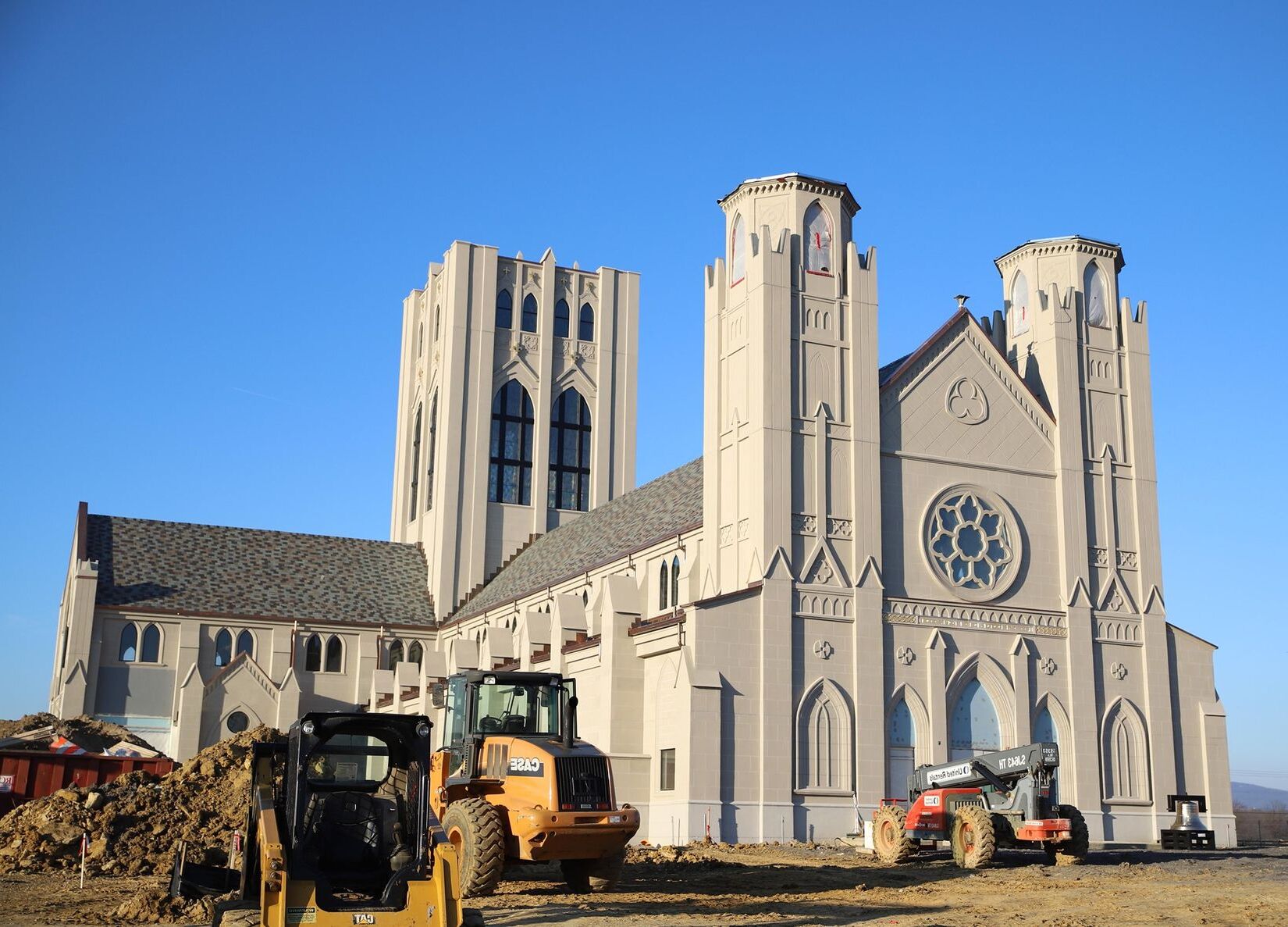
What is Christendom? It's a term that paints a broad picture of the Christian world, encompassing its nations, cultures, and history. From the early days of Christianity in the 1st century AD to the modern era, Christendom has shaped and been shaped by countless events and movements. Think of the Roman Empire's shift under Constantine, the theological debates at the Council of Nicaea, or the sweeping changes of the Reformation. Christendom isn't just about religion; it's about art, music, social justice, and even science. Dive into these 40 facts to understand how Christendom has influenced and been influenced by the world around it.
What is Christendom?
Christendom is a term that captures the essence of the Christian world, its cultures, and its history. It encompasses a vast array of traditions, beliefs, and practices that have shaped societies for centuries.
- Definition of Christendom: Christendom refers to the collective body of Christian nations and cultures, particularly in Europe, but also extending to other parts of the world where Christianity has had a significant influence.
The Early Days of Christianity
The roots of Christendom trace back to the early Christian Church, which emerged in the 1st century AD.
-
Early Christianity: The early Christian Church emerged in the 1st century AD, following the life and teachings of Jesus Christ. The apostles, including Peter and Paul, played crucial roles in spreading Christianity throughout the Mediterranean world.
-
The Roman Empire and Christianity: The Roman Empire, which ruled much of Europe, North Africa, and parts of Asia, initially viewed Christianity as a threat. However, Emperor Constantine's conversion to Christianity in 312 AD marked a significant turning point, leading to the Edict of Milan in 313 AD, which granted tolerance to Christians.
-
The Council of Nicaea: In 325 AD, the Council of Nicaea was convened to address theological disputes within the early Christian Church. This council established the Nicene Creed, which affirmed the divinity of Jesus Christ and the Holy Spirit.
The Byzantine Influence
The Byzantine Empire played a pivotal role in preserving and spreading Christianity.
- The Byzantine Empire: The Byzantine Empire, also known as the Eastern Roman Empire, was a continuation of the Roman Empire in the east. It played a significant role in preserving and spreading Christianity, particularly through its capital city, Constantinople (modern-day Istanbul).
The Crusades and Inquisition
These events had profound impacts on both Christian and Islamic cultures.
-
The Crusades: The Crusades, a series of military campaigns launched by Christians in the 11th to 13th centuries, aimed to reclaim the Holy Land from Muslim rule. These conflicts had profound impacts on both Christian and Islamic cultures.
-
The Inquisition: The Inquisition, established in the 12th century, was a series of tribunals and investigations conducted by the Catholic Church to root out heresy and enforce orthodoxy. It had a significant impact on European society and culture.
The Reformation and Counter-Reformation
The 16th century brought significant changes to Christendom with the Reformation and Counter-Reformation.
-
The Reformation: The Protestant Reformation, led by figures such as Martin Luther and John Calvin, began in the 16th century and challenged many of the Catholic Church's practices and doctrines. This led to the emergence of Protestant denominations and further fragmentation within Christendom.
-
The Counter-Reformation: In response to the Reformation, the Catholic Church initiated the Counter-Reformation. This movement aimed to reform the Church from within and counter Protestantism through renewed emphasis on doctrine, liturgy, and missionary work.
Enlightenment and Missionary Work
The Enlightenment and missionary work have also shaped Christendom in significant ways.
-
The Enlightenment and Reason: The Enlightenment, which emerged in the 17th and 18th centuries, emphasized reason and intellectual inquiry. This period saw significant challenges to traditional Christian beliefs and practices, leading to the rise of deism and other forms of secularism.
-
Missionary Work: Missionary work has been a cornerstone of Christendom, with Christian missionaries spreading their faith to various parts of the world. This has led to the establishment of Christian communities in Africa, Asia, and the Americas.
Colonialism and the Role of Women
Colonialism and the role of women have had lasting impacts on Christendom.
-
Colonialism and Imperialism: The expansion of European empires during the colonial era often involved the imposition of Christianity on indigenous populations. This had profound cultural and social impacts on colonized societies.
-
The Role of Women in Christendom: Throughout history, women have played significant roles in Christendom, from early Christian saints to modern-day clergy and theologians. However, women have also faced numerous challenges and restrictions within the Church.
Theological Debates and Science
Theological debates and the rise of science have continually shaped Christian thought.
-
Theological Debates: Christendom has been marked by numerous theological debates, including the Arian controversy, the Pelagian controversy, and the debates over papal infallibility. These debates have shaped Christian doctrine and practice.
-
The Impact of Science on Theology: The scientific revolution of the 16th and 17th centuries posed significant challenges to traditional Christian views of the world. The rise of evolutionary theory and other scientific discoveries has led to ongoing debates about the relationship between science and theology.
Ecumenism and Contemporary Issues
Modern Christendom faces new challenges and opportunities for unity.
-
Ecumenism and Interfaith Dialogue: In recent decades, there has been a growing emphasis on ecumenism and interfaith dialogue within Christendom. This seeks to promote greater understanding and cooperation between different Christian denominations and with other faiths.
-
Contemporary Issues in Christendom: Today, Christendom faces a variety of contemporary issues, including debates over LGBTQ+ rights, the role of women in the Church, and the impact of globalization on local Christian communities.
Evangelicalism and Pentecostalism
New movements within Christendom continue to shape its future.
-
The Rise of Evangelicalism: Evangelicalism, a movement emphasizing personal conversion and biblical literalism, has become a significant force within Christendom. This movement has influenced both Protestant and Catholic traditions.
-
Pentecostalism and Charismatic Movements: Pentecostalism and charismatic movements have also had a profound impact on Christendom. These movements emphasize the gifts of the Holy Spirit and have led to the growth of new denominations and independent churches.
Theological Education and Liturgical Practices
Education and worship practices are central to the Christian experience.
-
Theological Education: Theological education has played a crucial role in shaping Christendom. From the early Christian schools of Alexandria to modern-day seminaries, theological education has provided the intellectual foundation for Christian ministry and scholarship.
-
Liturgical Practices: Liturgical practices have varied widely within Christendom. From the elaborate rituals of the Eastern Orthodox Church to the simplicity of Protestant worship services, liturgy has been a central aspect of Christian worship.
Art, Music, and Social Justice
Christendom's cultural contributions are vast and varied.
-
Art and Architecture: Christendom has produced some of the most iconic works of art and architecture in human history. From the Sistine Chapel to Notre Dame Cathedral, Christian art and architecture reflect the spiritual and cultural aspirations of Christendom.
-
Music and Worship: Music has played a vital role in Christian worship throughout history. From Gregorian chant to contemporary praise music, music has been used to express devotion, tell stories, and bring communities together.
-
Social Justice and Mission: Social justice and mission have long been central concerns within Christendom. Christian communities have been involved in various forms of social activism, from abolitionism to contemporary movements for human rights.
Ecological Concerns and Interfaith Relations
Modern challenges include environmental issues and building bridges with other faiths.
-
Ecological Concerns: In recent years, there has been growing awareness within Christendom about ecological concerns. Many Christian communities are now actively engaged in environmental activism and sustainability initiatives.
-
Interfaith Relations: Interfaith relations have become increasingly important within Christendom. Christians are engaging in dialogue and cooperation with adherents of other faiths, recognizing the shared values and common humanity that unite them.
Technology and Globalization
The digital age and globalization are reshaping Christendom.
-
Theological Education in the Digital Age: The digital age has transformed theological education within Christendom. Online courses, digital resources, and social media platforms are now integral to the learning process for many Christian scholars and ministers.
-
Globalization and Local Churches: Globalization has had both positive and negative impacts on local churches within Christendom. While it has facilitated international cooperation and resource sharing, it has also led to cultural homogenization and the erosion of traditional practices.
Women in Leadership and LGBTQ+ Rights
Debates over inclusion and equality continue to shape Christendom.
-
Women in Leadership: The role of women in leadership within Christendom remains a contentious issue. While some denominations have ordained women as clergy, others continue to restrict their roles to specific areas of ministry.
-
LGBTQ+ Rights: The debate over LGBTQ+ rights within Christendom is ongoing. Some Christian denominations have adopted inclusive policies, while others continue to uphold traditional teachings on sexuality and gender.
Modern Theological Debates
Theological discussions continue to evolve in the modern era.
- Theological Debates in the Modern Era: Modern theological debates within Christendom include discussions on issues such as predestination, the nature of God, and the role of scripture in contemporary life. These debates reflect ongoing efforts to interpret and apply Christian doctrine in light of changing contexts.
Ecumenical and Interfaith Movements
Efforts to promote unity and understanding are ongoing.
-
Ecumenical Movements: Ecumenical movements aim to promote unity among different Christian denominations. Organizations like the World Council of Churches have played significant roles in fostering dialogue and cooperation across denominational lines.
-
Interfaith Dialogue Initiatives: Interfaith dialogue initiatives seek to build bridges between Christians and adherents of other faiths. These initiatives often focus on shared values such as compassion, justice, and peace.
Theological Education and Critical Thinking
Education in theology must foster critical thinking and engagement with diverse perspectives.
- Theological Education and Critical Thinking: Theological education should foster critical thinking skills. Students of theology need to engage with diverse perspectives, evaluate evidence, and develop well-reasoned arguments to contribute meaningfully to ongoing theological debates.
Technology and Worship
Technology is transforming how Christians worship.
- The Impact of Technology on Worship: Technology has transformed worship practices within Christendom. From live streaming services to digital hymnals, technology has expanded the reach and accessibility of Christian worship.
Cultural Exchange and Social Justice
Cultural exchange and social justice are vital aspects of modern Christendom.
-
Cultural Exchange Programs: Cultural exchange programs between Christian communities from different regions can foster greater understanding and cooperation. These programs often involve mutual visits, joint projects, and shared learning experiences.
-
Theological Education for Social Justice: Theological education should equip students with knowledge and skills relevant to social justice issues. This includes understanding systemic injustices, developing advocacy strategies, and engaging in community service projects.
Ecumenical and Interfaith Theology
Theology that promotes unity and understanding is essential.
-
Ecumenical Theology: Ecumenical theology seeks to promote unity among different Christian denominations by exploring commonalities in their theological traditions. This approach emphasizes shared faith commitments while respecting denominational differences.
-
Interfaith Theology: Interfaith theology involves dialogue and cooperation between Christians and adherents of other faiths. This field of study recognizes the value of diverse perspectives and seeks to build bridges between different religious traditions.
The Future of Christendom
The future of Christendom is uncertain but promising.
- The Future of Christendom: As the world becomes increasingly interconnected, Christian communities will need to adapt to new challenges while remaining true to their core values of love, compassion, and service. The continued emphasis on theological education, social justice, and interfaith dialogue will be crucial in shaping the future of Christendom.
The Future of Christendom
Christendom's journey through history is nothing short of fascinating. From its early days in the Roman Empire to the modern era's complex theological debates, it's clear that Christianity has left an indelible mark on the world. The challenges and opportunities facing Christendom today, like LGBTQ+ rights, women's roles, and interfaith dialogue, show its dynamic nature. As globalization and technology continue to shape our world, Christian communities must adapt while staying true to core values of love, compassion, and service. The emphasis on theological education, social justice, and environmental concerns will play a crucial role in shaping the future. Christendom's rich tapestry of history, culture, and faith promises a future filled with both challenges and hope. Understanding these facts helps us appreciate the evolving nature of Christianity in today's interconnected world.
Was this page helpful?
Our commitment to delivering trustworthy and engaging content is at the heart of what we do. Each fact on our site is contributed by real users like you, bringing a wealth of diverse insights and information. To ensure the highest standards of accuracy and reliability, our dedicated editors meticulously review each submission. This process guarantees that the facts we share are not only fascinating but also credible. Trust in our commitment to quality and authenticity as you explore and learn with us.


